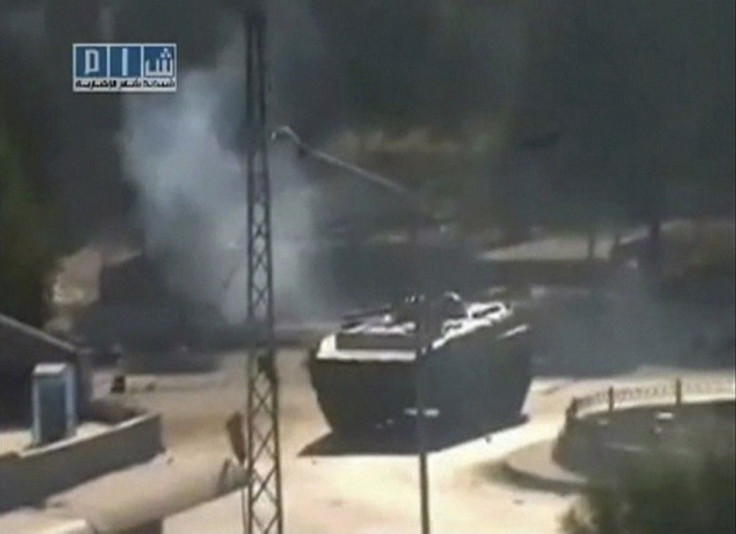Saudi Arabia Recalls Envoy to Syria, Says 'Death Machine' Should Stop

Hours after the Arab League condemned the Syrian regime's violent crackdown on pro-democracy demonstrators, Saudi Arabia said it was recalling its ambassador to Damascus and denounced the Syrian “death machine” in harsh language.
Saudi King Abdullah said the violence was unacceptable and asked Damascus to stop it before it was too late, the BBC reported.
Saudi Arabia, the regional powerhouse, has never been an ally of Syria, but the public remonstration of the government-sponsored violence in Syria will further weaken the position of Bashar Al-Assad.
On Sunday, activist groups said at least 80 protesters were killed as the army continued brutal assaults in central Syria.
King Abdullah said the decision to cancel all support to Syria was historic: "Any sane Arab, Muslim or anyone else knows that this has nothing to do with religion, or ethics or morals; spilling the blood of the innocent for any reasons or pretext leads to no path to ... hope," Abdullah said a statement broadcast by the al-Arabiya satellite channel.
"What is happening in Syria is not acceptable for Saudi Arabia," he continued. "There are only two options for Syria's future: either it chooses wisdom on its own, or it will be pulled down into the depths of chaos and loss.
"The kingdom of Saudi Arabia ... demands an end to the death machine and bloodshed and calls for acts of wisdom before it is too late," the king said. "Syria should think wisely before it is too late and issue and enact reforms that are not merely promises but actual reforms."
Last week, the United States came down heavily on Syria, saying that President Bashar al-Assad's regime has lost legitimacy and that the rulers were accountable for the deaths of more than 2,000 pro-democracy protesters.
"We are working around the clock to try to gather up as much international support for strong actions against the Syrian regime as possible. I come from the school that actions speak louder than words," Secretary of State Hillary Clinton said. She said Assad has "lost his legitimacy to govern the Syrian people."
The United Nations also condemned the regime’s use of violence on demonstrators. Wednesday's UN resolution said Assad's government committed "widespread violations of human rights and the use of force against civilians." The U.S. and the European Union also decided to toughen sanctions against Damascus.
According to activist sources, at least 50 protesters were killed in Deir al-Zour on Sunday while 26 were killed in Hula, near the city of Homs.
© Copyright IBTimes 2024. All rights reserved.




















